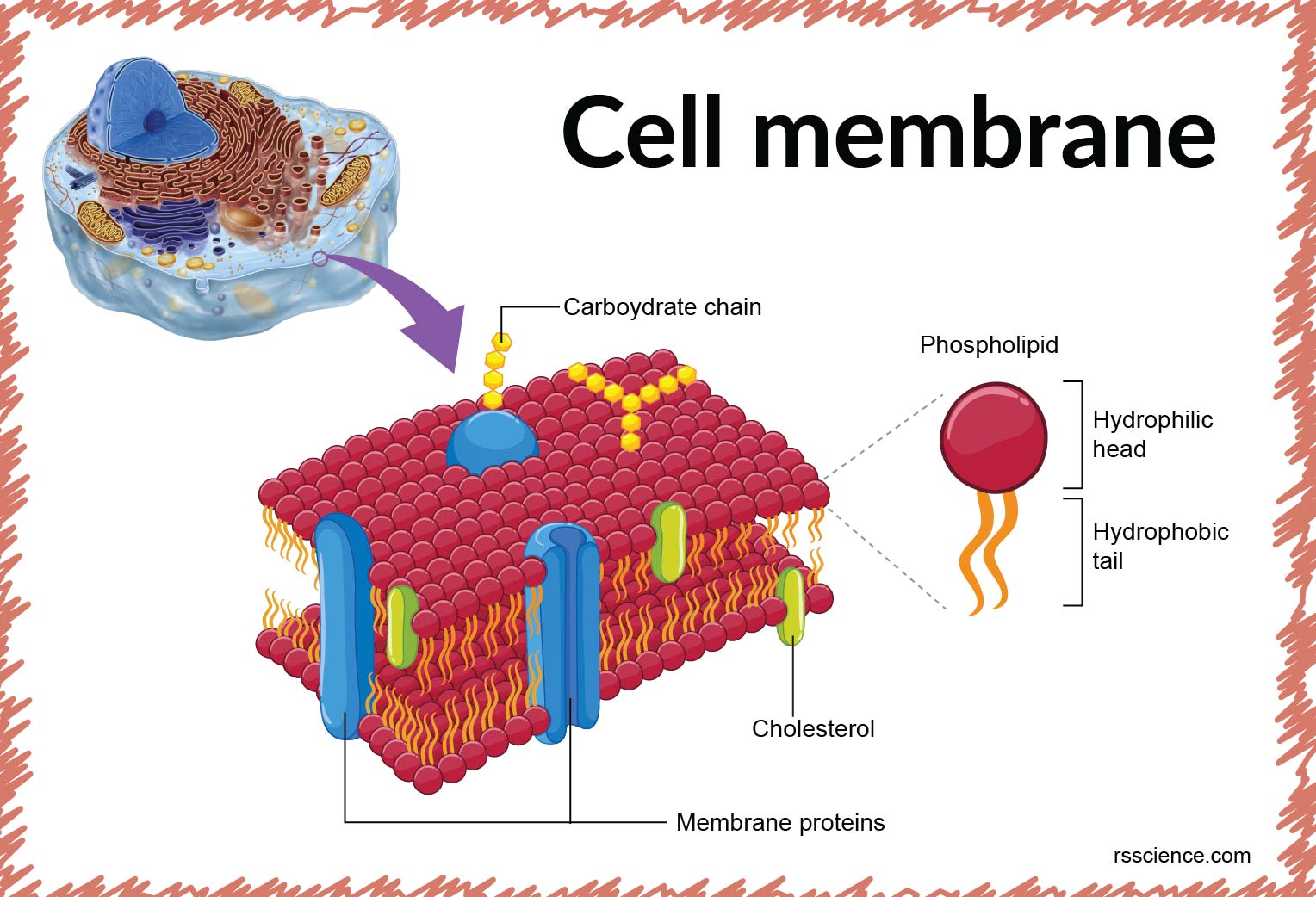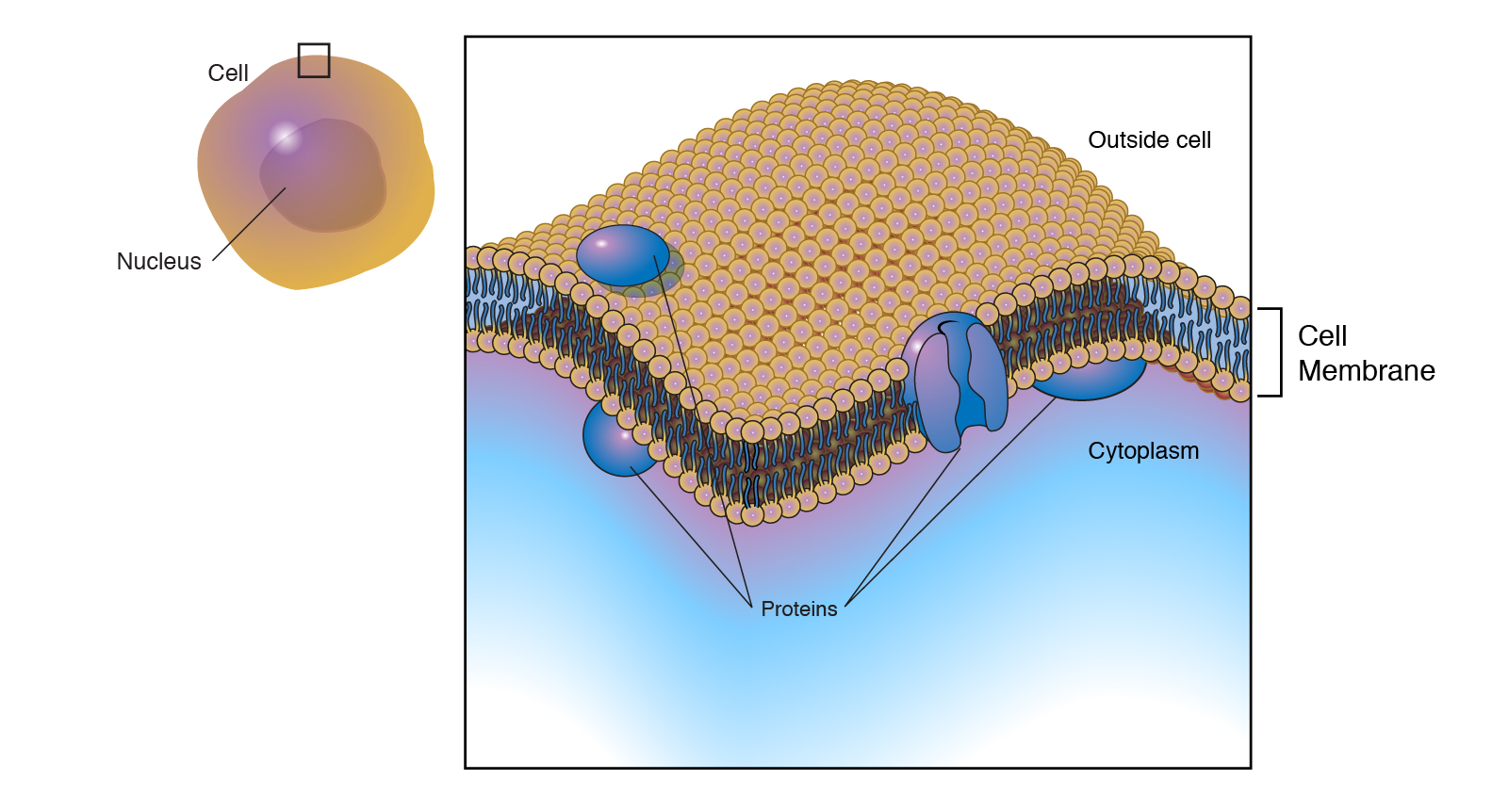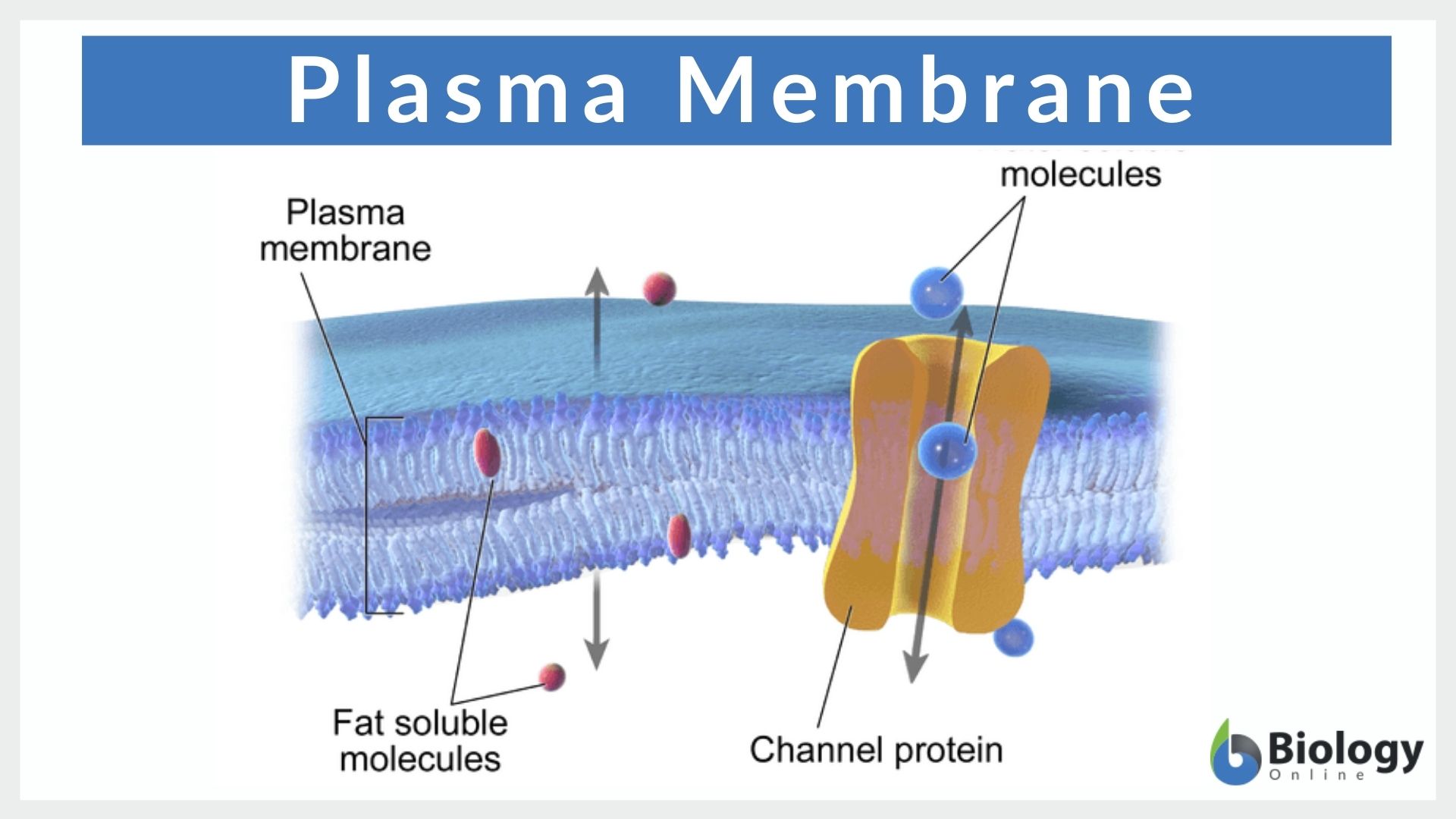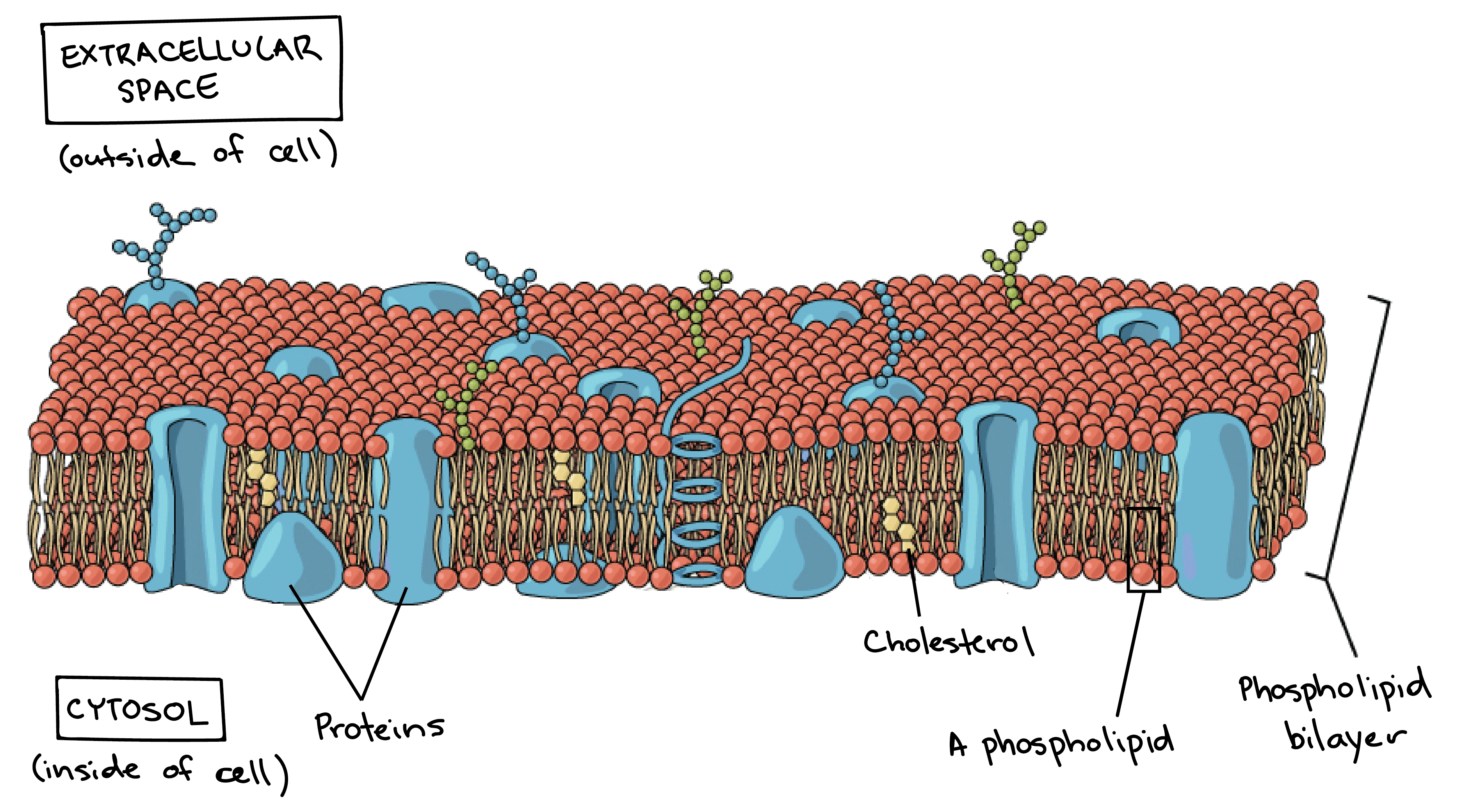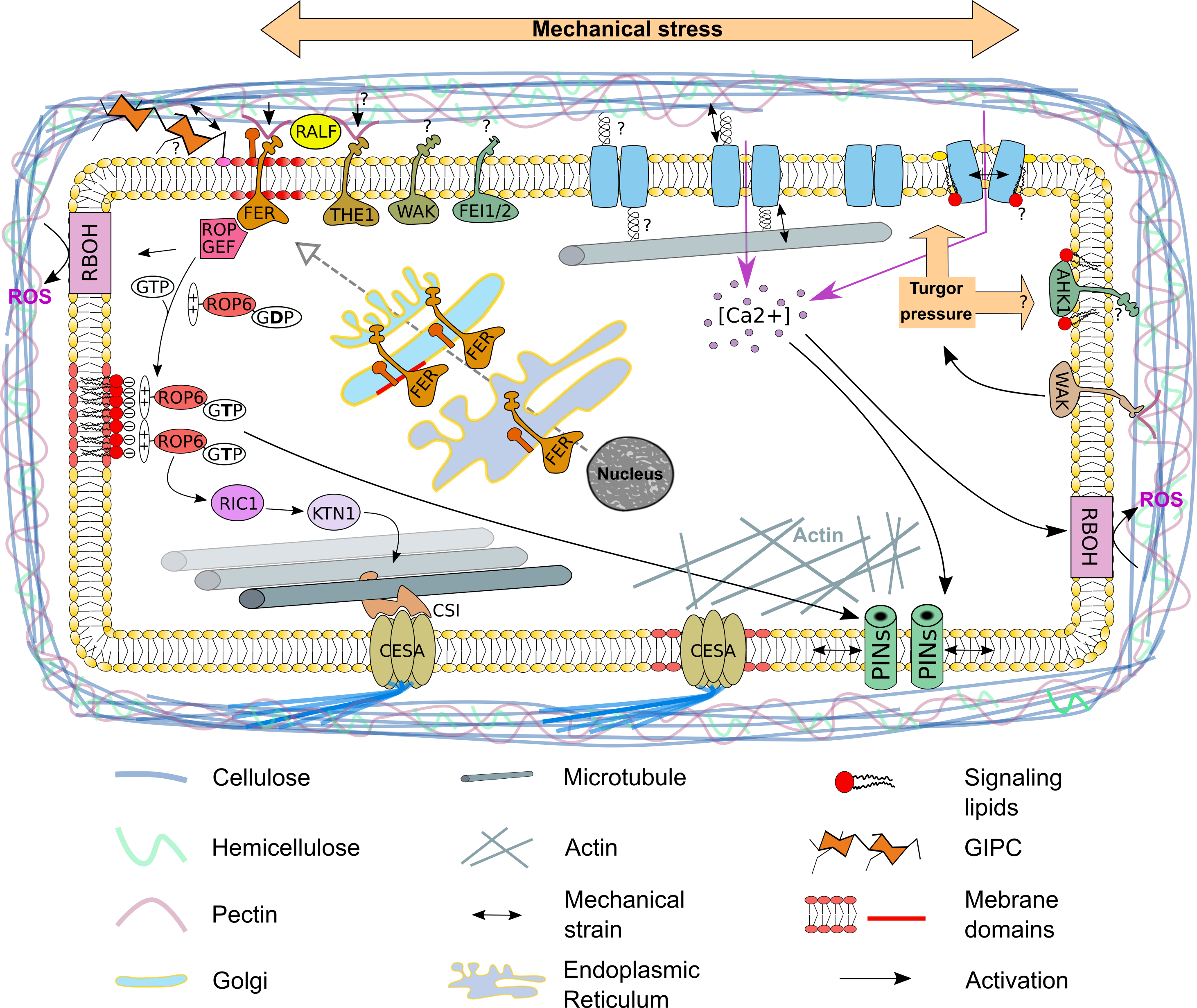Cell Membrane Definition Easy

The cell membrane functions as a barrier keeping cell constituents in and unwanted substances out and as a gate allowing transport into the cell of essential nutrients and movement from the cell of waste products.
Cell membrane definition easy. Biology a very thin membrane composed of lipids and protein that surrounds the cytoplasm of a cell and controls the passage of substances into and out of the cell. The cell membrane is also known as plasma membrane or plasmalemmaThis membrane separates the fluid outside the cell called extracellular fluid ECF and the fluid inside the cell called intracellular fluid ICF. It is the outermost layer of the cell in animals and encloses other cellular organelles within.
Unlike the cell wall the cell membrane is flexible and its shape can be changed as needed. It separates the cytoplasm. Most of the small hydrophobic molecules without affinity for water pass through this membrane freely.
How to use cell membrane in a sentence. The cell membrane also called the plasma membrane is found in all cells and separates the interior of the cell from the outside environment. Its basic job is.
The cell membrane is a phospholipid bi-layer into which proteins glycoproteins and glycolipids are ingrained. A semipermeable limiting layer of cell protoplasm consisting of a fluid phospholipid bilayer with intercalated proteins. A thin membrane a double layer of lipids enclosing the cytoplasm of a cell.
Proteins in the membrane control passage of ions like sodium or potassium or calcium in and out of the cell. Cell membrane noun 1. Cell Membrane is the second layer in plant cell present below the cell wall while in animal cell it is the first layer.
The cell membrane is the membrane that surrounds the cell and isolates it from the outside world. Cells are the structural functional and biological units that make up all living things. A cell membrane is a border that covers every cell in a living organism.
